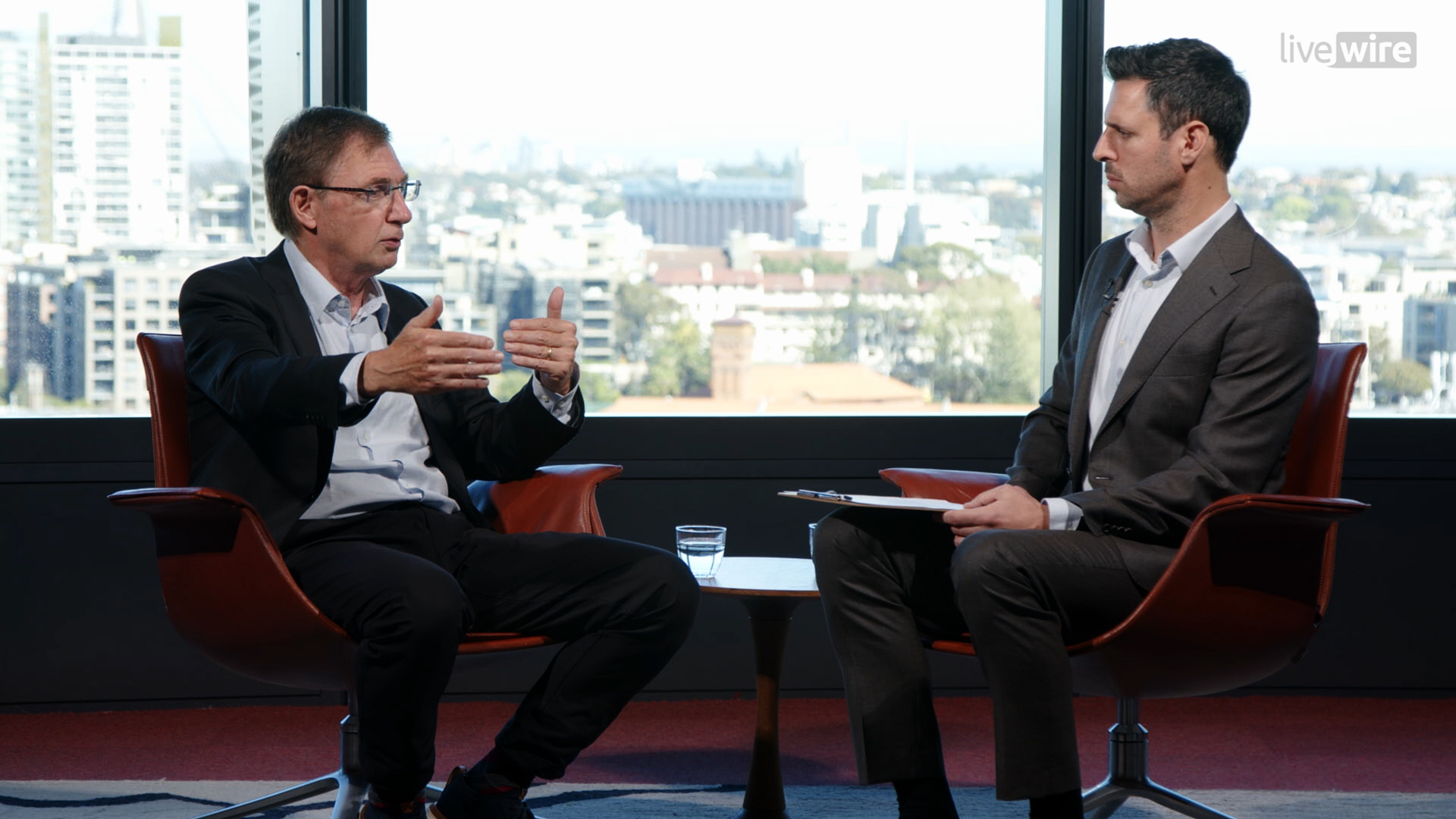Trump's new economic order is here to stay
Trump's trade war has dominated headlines, moved markets and served as the subject for many water cooler conversations.
But beneath the bluster, there is a clear logic, and existential necessity, to Trump's aggressive dismantling of the prevailing global economic order, says Kevin Hebner, global investment strategist at TD Epoch.
This interview was filmed on 15 September 2025.
"People often view Trump as the person throwing the hand grenades changing the world order. Trump is responding to the rise in China - this export juggernaut - and all these unsustainable policies coming out of China," says Hebner.
With the status quo becoming increasingly unsustainable by the day, the US and China are waging an economic cold war that will come to define our shared future.
And at the heart of the battle is the value of the US dollar and how it has shaped global trade.

While the US has benefitted from the dollar becoming the world's reserve currency, it has come at the expense of American industry and played into the hands of a China that has rapidly industrialised.
"The view of the Trump administration is that the dollar is strong because of the intervention of Asian central banks to subsidise their exports," says Hebner.
"And the impact of the strong dollar has resulted in a deindustrialisation of the United States. So over the last 25 to 30 years, so much production manufacturing has been moved abroad."
It has now created an existential threat for the US, as China has come to dominate manufacturing in the key industries of the future: batteries, EVs, drones, semiconductors and AI.
"That's created enormous choke points in the US as it forgets how to make basic things - from semiconductors to ships, to drones - many of the industries of the future," said Hebner.
"And that might be okay in a world that's hyper-globalised where everybody's friendly. But the last 25 years we've seen the rise of China challenging US hegemony in terms of economic strength, technological capabilities and defence."
"So this is no longer tenable and it's really the core economic purpose of the United States to re-industrialise, and you can't re-industrialise the US without a much weaker currency."
A trillion dollar dilemma
"The US has a trillion dollar trade deficit. China has a trillion dollar trade surplus," says Hebner.
It shows China has doubled down on its export-only trade policy and has finally forced the hand of the US.
"The Trump administration views China as an existential adversary. And as China's capabilities in manufacturing, economic strength tech and defence capabilities are challenging US hegemony, this absolute results in a new global economic order."
"We never get a memo on when the new economic order changes, but the order changed 25 years ago when China entered the WTO."
"And the hope at that time is that China would join the current global economic order, that they would trade with everyone, and over time become more of a liberal democracy. That's clearly not happening. In fact, President Xi is moving in the opposite direction."
"China has an unsustainable economic policy right now: modern mercantilism."
Devaluing the dollar
Key to Trump's attempts to reindustrialise the US is a weaker dollar.
Interest rate cuts are an obvious lever to pull and Hebner expects 150 basis points of cuts over the next year. But that isn't a silver bullet.
"When you have a structural problem, a cyclical solution like cutting interest rates is not going to do it."
The Trump administration has proposed the so-called Mar-a-Lago Accord, which looks to rewrite global trade dynamics.
But arguably more significant is the quiet coup occurring at the Federal Reserve.
This week, Stephen Miran, chair of the Council of Economic Advisors in the White House, was confirmed as a Fed governor.
He was central to the Mar-A-Lago Accord and has proposed a number of policies aimed at devaluing the dollar and encouraging reindustrialisation.
"One could be direct currency intervention, a second could be bond swaps," says Hebner.
The appointment further blurs the line between the White House and the Fed, and gets Trump closer to majority control of the Fed board.
"This notion of fed independence is over."
Miran's confirmation gives Trump three allies out of the seven governors. He will get one more when Chair Jerome Powell steps down in May.
That would give the White House a lot of control over not only the FOMC, which sets interest rates, but the Fed's trillion-dollar balance sheet.
"Trump would like to encourage banks to lend to friends and allies of the administration and discourage lending the other way," said Hebner.
"And certainly Trump could declare an economic emergency. We do have an economic emergency - a trillion dollar trade deficit. This is not sustainable."
"I think the Supreme Court would totally back them on this: that this is an economic emergency, which gives them access to the Fed's balance sheet. What we're going to be seeing in terms of Fed policies over the next six months is going to be very interesting."
It's a situation that also demands action from other developed nations, such as Australia, that are caught in the crossfire of the US-China trade war.
"I think that's important for Australia to coordinate with allies and to some extent present a united front to the United States because clearly everyone needs to work with the United States. They need to give the US incentives to work with them and not get bullied by the Trump administration," said Hebner.
Regardless of who wins the next US presidential election in 2028, the new economic order is here to stay.
"When we do get the next administration, they will reverse basically zero of Trump's policies because the ship has sailed. Hopefully the next administration will be friendlier to allies, but it's going to remain challenging."


4 topics
2 funds mentioned

